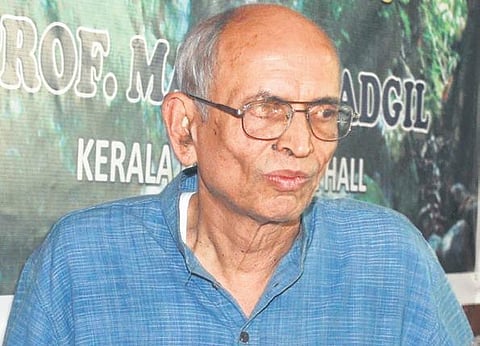

KOCHI: Four years of torrential rain, floods, landslides and devastation. Natural calamities have become an order of the day for Kerala. Each year, when the state is devastated by flood, it triggers a debate on the Madhav Gadgil committee report.
The Western Ghats Ecology Expert Panel was set up by former Union minister for environment Jairam Ramesh in 2010 to assess the ecology and biodiversity of Western Ghats and suggest measures to conserve, protect and rejuvenate the region that extends around 1,500 km from Gujarat to Kerala.
In its report, the panel suggested that the entire area should be designated as ecologically sensitive and classified as ecologically sensitive zones based on their existing condition and nature of threat. A decade after his report triggered a controversy in Kerala, Gadgil feels that implementation of his report would have helped reduce the impact of climate change and extreme climatic events.
“Recent floods and landslides are unfortunate. What we had said in the report was based on truthful collection of scientific evidence. Nobody can find fault with the report. However, certain vested interests who wanted to make quick money by damaging ecology campaigned against the report and it was sabotaged. Had Kerala implemented the report, we could have avoided many unfortunate incidents,”
Madhav Gadgil told TNIE. He said climate change has triggered extreme climatic events across the globe. The world is witnessing more cyclones and intense rainfall.
“Unscientific land use and functioning of quarries near ecologically sensitive zones have increased the pace of natural disasters in Kerala. Conversion of land for single crop in high ranges is the reason for landslides. Any development project should be implemented only after considering the opinion of local populace,” said Gadgil.
Criticising the move to develop a high-speed rail corridor in Kerala, Gadgil said he has got hundreds of letters pointing out the ecological impact of the project. “We are causing more damage to ecology by taking up new projects. This will lead to opening of more stone quarries. Our report had suggested a democratic process to seek opinion of local people before launching a project. I don’t think the rail corridor project has got support at the ground level,” he said.
Gadgil said that, in view of recurring floods, Kerala should discuss his report at the grama sabha level to create awareness on the need to conserve nature. “Kerala Sastra Sahitya Parishad has translated my report to Malayalam and it should be distributed to all panchayats to hold discussions in grama sabhas. People should understand the impact of development on ecology and let them decide on future course of action. We should maintain a balance between development and ecology,” he said.